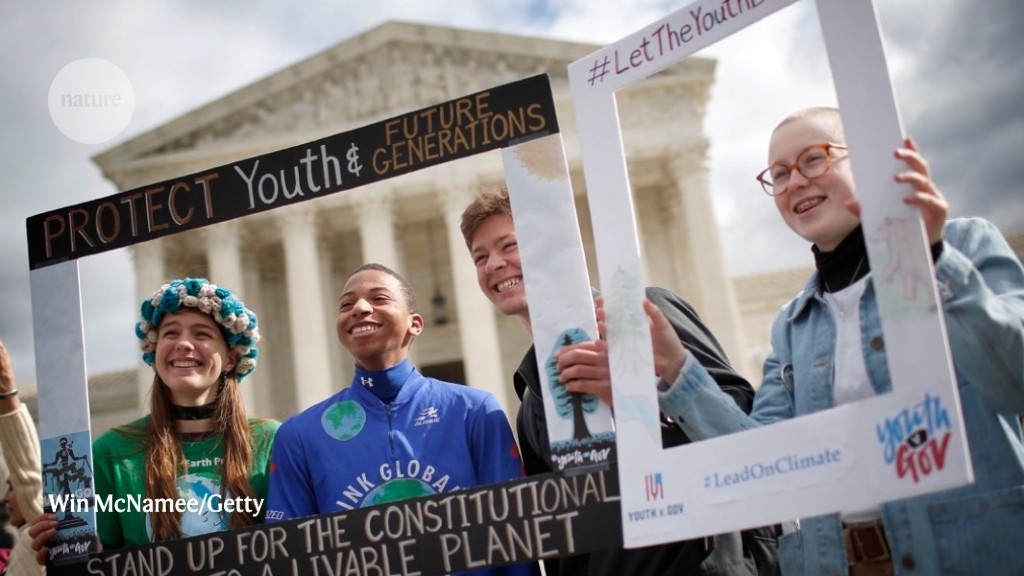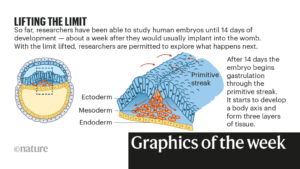Witness in US climate-change law suit tells all

They Knew: The US Federal Government’s Fifty-Year Role in Causing the Climate Crisis James Gustave Speth MIT Press (2021)
The week of 24 May 2021 was, in the phrases of 1 main litigator, “a great week to be a climate lawyer”. Two landmark judgments despatched shock waves via the authorized world. On 26 May, the Hague District Court ordered Royal Dutch Shell to cut back its greenhouse-gas emissions by 45% from 2019 ranges by 2030. It was the primary time {that a} court docket had ordered an organization to take such motion on the premise of hurt to others. The subsequent day, an Australian decide discovered that the minister of the setting had an obligation of care to Australian kids to guard them from foreseeable future harms attributable to elevated greenhouse-gas emissions in the ambiance.
Both judgments symbolize years of graft by dedicated plaintiffs and authorized groups. They are additionally a part of a wider story. Around the world, some 1,850 ‘climate-change cases’ have now been filed, many by local weather attorneys and purchasers who’ve turned to the courts to handle the local weather disaster by filling the gaps left by sluggish or insufficient authorities motion. Successes comparable to these in Australia and the Netherlands, unimaginable a decade in the past, symbolize hard-fought victories in a seamless battle over the evolving understanding of rights and tasks in the context of a altering local weather. Neither would have been potential with out earlier circumstances — received or misplaced — that launched local weather science into the courtroom.
It is towards this backdrop that Gus Speth’s well timed ebook have to be understood. It started as an skilled report in a well-known climate-change case: Juliana et al. v. US Government, submitted to the Oregon District Court by 21 youth plaintiffs and others in 2015. The claimants’ arguments rested on the federal authorities’s constitutional obligations to guard US residents’ rights to life, liberty and property, and to guard the ambiance as a part of a “public trust”. They alleged that the federal government had violated these duties by “perpetuating” a fossil-fuel-based vitality system, regardless of “long-standing knowledge” of its harms.
(adsbygoogle = window.adsbygoogle || []).push({});
In their introduction to the ebook, Julia Olson and Philip Gregory, counsel for the plaintiffs, clarify that they needed to exhibit that the federal government had each allowed and knowingly created the alleged harms. This required them to show that the conduct of the federal authorities was a major reason behind the US dependancy to fossil fuels, the purpose Speth’s report was commissioned to exhibit.
Speth was an impressed selection of witness. Drawing on first-hand data from his time as chair of the US Council on Environmental Quality throughout the administration of president Jimmy Carter (1977–81), and his founding function in a number of main environmental non-governmental organizations, Speth provides a transparent and concise account of the scientific proof out there to successive US presidents and Congresses over 5 many years. He supplies a chilling description of the gulf between the safer plan of action really useful by scientists and advisers, and the fact of federal coverage. Given the ebook’s unique function — an exhaustive presentation of proof — at occasions it may seem to be a laundry listing of warnings ignored. Fortunately, Speth peppers it with gripping insider particulars.
One compelling instance: the pace with which the administration of George H. W. Bush (1989–93) turned away from early recognition of the advantages of utilizing coverage to cut back local weather threat, and have become dominated by staffers who used materials from the fossil-fuel business to solid doubt on the science. The administration of Bill Clinton (1993–2001) ran a miscalculated public-awareness marketing campaign that really elevated the partisan divide in perceptions of local weather science. These episodes provide fascinating perception into subsequent occasions.
Much of the story shouldn’t be new. Elements of the interactions between the US fossil-fuel business and the federal authorities have been charted elsewhere, comparable to in the work of science historian Naomi Oreskes, or in local weather scientist Michael Mann’s ebook The New Climate War (2021). Yet even for the acquainted reader, Speth’s deal with the federal authorities supplies a recent perspective.
A key function of the Australian and Dutch circumstances is that, in contrast to many earlier than them, they set up a obligation for the defendants to behave now and in the long run. The essential challenge was not what the minister or Shell knew in the previous, however what they need to do now, in the sunshine of the worldwide consensus on the local weather risk. Although establishing the parameters for future choices is a vital aim of local weather litigation, Speth’s ebook reminds us that main questions on historic duty can’t be ignored. In the US context, the Juliana plaintiffs have begun settlement talks with the administration of President Joe Biden and vice-president Kamala Harris, which could result in solutions. Around the world, comparable reckonings with the previous are simply starting.




